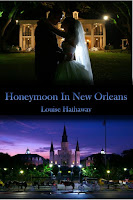When was the last time you visited a library? How long has it been since you asked a librarian a reference question? These days, it seems like the only people who go to the library are those wanting to use the Internet or check out DVDs. It's a favorite hang-out for the homeless or those seeking either an air-conditioned or heated place to camp out all day and night until closing. The times they are a changin' as Bob Dylan says.
I started working in a law library in 1983. It was the heyday of libraries. It was interesting work and we had a lot of lawyers as patrons, before Lexis/Nexis came along. The library was in the civic center where all the county business took place. Our library was between the Federal and the State building, so there was always a lot of buzz and never a boring day. When the governor visited our library, his body guards were stationed atop the State Building with their rifles drawn and ready. Before Bill Clinton was nominated for a second term, he came to the old county courthouse to give a speech. My friends and I walked over to see him and passed through security that was similar to what you'd find at an airport.
The people I worked with were all college educated and three were former lawyers. We used to have enjoyable conversations about politics, TV, movies, and each other (there was a lot of office politics that I did my best to steer clear of). I was one of the writers of the library's newsletter so it was fun coming up with ideas for my articles. I got to go to other libraries on field trips on work time. One of my favorite's was the National Archives in Laguna Niguel where I saw how and where all the boxes of data were stored. I'll never forget the time when the library's electronic compact shelving malfunctioned and almost crushed to death one of my coworkers.
I used that background for the first novel I wrote that takes place in a library. It is called "Death Among the Stacks: The Body in the Law Library". I had Agatha Christie's detective, Hercule Poirot, in mind when I wrote this book with my husband. We wanted it to be a story with multiple suspects who, in the last chapter, are summoned by the detective, who then grills them in front of everyone, saying why he suspected each one until he finally reveals whodunit.
Death Among the Stacks:
The Body in the Law Library
by Louise Hathaway
The second book about libraries I wrote is a romantic comedy. It's about a librarian who goes to a performance at a mystery dinner theater where someone is actually killed--definitely not part of the act. A handsome detective comes to investigate and she falls madly in love with him. This one is a little racy: her fantasies about him are quite graphic (and very funny).
Watchin' the Detective:
A Mystery Dinner Romance
by Louise Hathaway
These books are available at Amazon, iTunes, Barnes and Noble, Google Play, Kobo Books, Smashwords and Oyster
Available in paperback at Amazon





